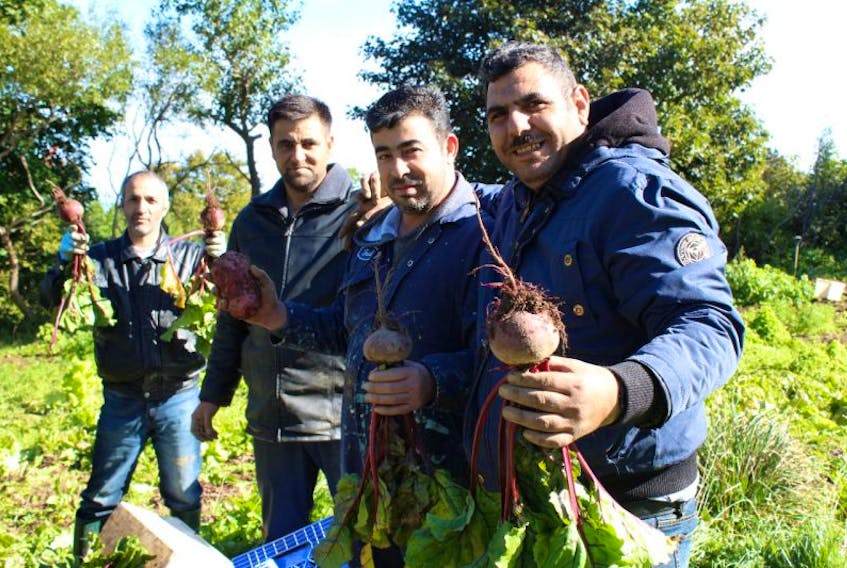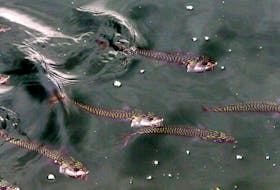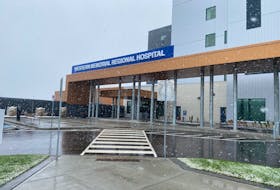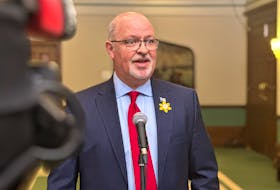“A lot, a lot of potatoes this year,” he said, pleased, when asked about the 2017 crop.
A good amount of the fall harvest was taken care of on Wednesday morning by a group of about a dozen people, including Sarki — all individuals studying with the Association for New Canadians.
As it happens, the entire group also worked in agriculture before coming to Newfoundland and Labrador.
Nazar Khalif arrived as a refugee from Syria. The father of eight told The Telegram he wanted to send a message that if the province needs more farmers, there are people looking for an opportunity, willing to learn but also able to bring skills to the table.
Khalif said he has quietly raised the issue on a few fronts, but would like to sit down with provincial and federal government representatives, if possible, to talk about the potential for obtaining land for a farm of his own in the future.
It’s a relevant conversation not just for his case.
“I think the government is able to give the land for (those) who would like to be a farmer,” he said. “A lot of refugees have experience for farming land and for farming cows. They have many years experience.”
Starting a farm would take more than just the land, but Khalif believes some kind of a reasonable path could be found for the newcomers to Canada. Supply management comes into play in dairy, and agricultural land is in demand, but the discussion called for by Khalif could help to clarify for the group what is possible for them here in the field of agricultural production.
A November 2015 population profile of Syrian refugees developed by Citizenship and Immigration Canada noted a labour market analysis of Syrian refugees in Lebanon showed 24 per cent were involved with agricultural activities.
Khalif said he personally had a family farm in Syria focused on dairy, but providing some meat from cattle as well. The farm kept a herd of 60 head.
Several individuals at the garden harvest were involved in some processing work in Syria in addition to farming. Monzer Rajab said he worked a family-run farm in Syria that specialized in dairy. That operation also produced cheese, he said.
Sarah Thompson, an education and support for employment co-ordinator with the Association for New Canadians, said she has been learning from the group as much as working with them. She sees where skills are meeting up with provincial demands.
“In Newfoundland we have to start feeding ourselves better than we do,” she said. “They need opportunities to farm.”

A chance to grow
Inside the Mercy Centre building, centre director Sister Mary Tee was prepping some fresh vegetables while more produce was being gathered from the garden, when The Telegram dropped in.
She said her organization has a garden committee, but the program involving the Association for New Canadians is really a simple idea.
“We have been providing the space here for them to grow vegetables,” she said.
In her view, the time they are able to spend in the garden — even with limited visits largely based on transportation needs — is a means of ministry.
“They know about growing,” she said, highlighting the participants’ employment history.
That said, she suggested, a chance to work the land right now, while they juggle language lessons and the demands of establishing a life in the province, is of personal benefit for them and she hopes it affords the newcomers new energy.
“Next year we’re going to put a more concentrated effort on trying to grow some new things that they’d have in their own country,” she said.
The prospect delighted Hari Maya Adhikari, who has a love for chilis and hot peppers, albeit less certain on the approach here.
The vegetables being prepped Wednesday are being served Thursday in a special harvest lunch for the group, including fresh salads and vegetable soup. The rest of the harvest is being shared with others from the association, who hail from many different countries, who helped to tend the garden this year.
“I say, when they come, the world appears here,” Tee said.









